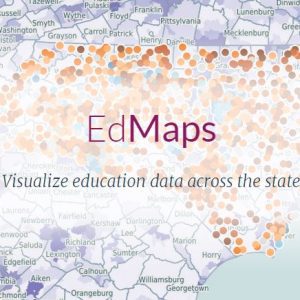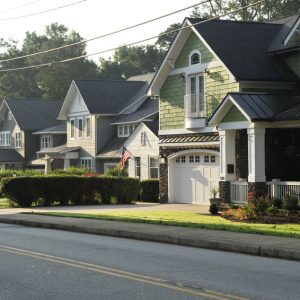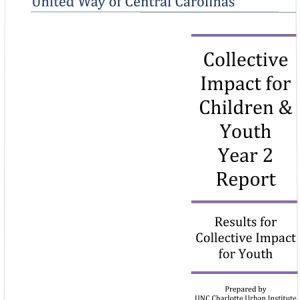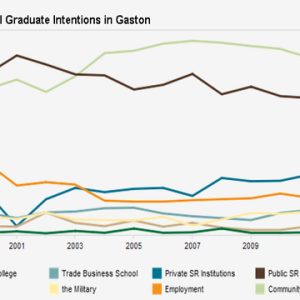Data

Report finds strengths, challenges in United Way’s Collective Impact initiative
Research by the UNC Charlotte Urban Institute for United Way of Central Carolinas has found that almost 90 percent of at-risk Charlotte-Mecklenburg Schools students who took part in programs from 14 local United Way-funded agencies over three or more years graduated from high school. The research also found that at-risk students served by UWCC-funded agencies […]

2015 Data Day to explore changing demographics
A researcher who studies the Millennial generation and how it differs from previous generations of U.S. young adults will be a featured speaker at the third annual Data Day conference Oct. 6-7. The conference, presented by the UNC Charlotte Urban Institute and the Federal Reserve Bank of Richmond, focuses on demographic trends in the Charlotte […]

Updated data tool analyzes neighborhood trends, comparisons
Residents, community leaders, government officials and local advocacy groups have long recognized the need for vibrant, healthy communities. However, there is no single way to define “healthy community.” One neighborhood might be considered economically healthy but not environmentally healthy, and vice versa. Neighborhoods with young populations might be facing different challenges than neighborhoods with older […]

Institute to provide maps, data for new nonprofit, EducationNC
EducationNC – a nonpartisan, nonprofit news source aiming to create a bipartisan, statewide conversation about public schools – launched Jan. 12. EdNC.org will provide online data, research, news, information and analysis about major trends, issues and challenges facing N.C. schools. On Mondays, Zach Szczepaniak and Claire Apaliski of the UNC Charlotte Urban Institute – building […]

Data’s more complex, but institute still helps you interpret it
During 2014, Americans became more aware than ever of the steadily growing role of data in our lives: a role that is influencing what we buy, shaping our connections with others, directing government policies and, through social media data-mining, making even our private behavior a commodity up for sale. Here at the UNC Charlotte Urban […]

Charlotte part of national effort on neighborhood data
You don’t attend many conferences where the first question you are asked is, “What’s your favorite dataset?” However, that was the question we heard when we represented Charlotte at the National Neighborhood Indicators Partnership (NNIP) conference in Denver. The UNC Charlotte Urban Institute, along with the City of Charlotte and Mecklenburg County, partnered to join […]

Collective Impact for Children & Youth Year 2 Report
Collective Impact is a collaborative approach that brings together stakeholders working towards shared goals in order to make significant change in communities. The Collective Impact for Children & Youth project was launched by the United Way of the Central Carolinas in the spring of 2012. This 10-year project involves 16 United Way-supported agencies in Mecklenburg […]

Report tallies gains from United Way’s Collective Impact initiative
It’s a simple concept: Focus on fewer goals and bigger results. That’s the idea behind the Collective Impact approach United Way of Central Carolinas has adopted. For United Way, that goal for the next 10 years is to increase the graduation rate among the more than 13,000 at-risk children who receive services from 16 United […]

Data Day 2014: Focus on housing
Does your business or nonprofit use housing data? Would you like to learn more about how to use local and national housing data more effectively? The second annual Charlotte Data Day kicks off at 8:30 a.m. June 17 at the UNC Charlotte Center City campus, 320 E. Ninth St. in Charlotte. This year’s event will […]

Gaston agencies, foundation work with institute to create new online resource
A new data resource about Gaston County is available through online, interactive dashboards. Trends on the county’s demographics, economy, education, health and quality of life are tracked and compared to peer counties as well as state and national figures. This represents a continuing partnership coordinated by Gaston Together and other local Gaston County groups with […]